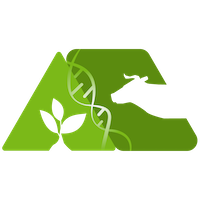Método para evaluar protección contra Pythium debaryanum y promoción del crecimiento de alfalfa por Pseudomonas fluorescentes
DOI:
https://doi.org/10.31285/AGRO.08.1002Palabras clave:
control biológico, Medicago sativa L., promoción del crecimiento vegetal, Pseudomonas, PythiumResumen
Las Pseudo monas fluorescentes, reportadas como efectivos agentes de control biológico, pueden ser utilizadas para manejar las enfermedades de implantación de la alfalfa (Medicago sativa L.), causadas por Pythium spp. En este trabajo, se describe una metodología in vivo para evaluar la capacidad de protección de enfermedad y de promoción del crecimiento vegetal de aislamientos de Pseudomonas fluorescentes, en el sistema alfalfa-Pythium debaryanum. El método consiste en un bioensayo en cámara de crecimiento, bajo condiciones controladas de temperatura y fotoperíodo. Las semillas de alfalfa se sembraron en substrato vegetal comercial y se procedió según los siguientes tratamientos: sin Pseudomonas, sin P. debaryanum (control de germinación); sin Pseudomonas, inoculado con P. debaryanum (control de enfermedad); cada uno de los aislamientos de Pseudomonas co-inoculados con P. debaryanum. Se realizaron 12 bioensayos, considerándose en su conjunto un diseño experimental aumentado, con cuatro testigos sistemáticamente evaluados en bloques completos al azar con 4 repeticiones y ampliado el bloque hasta alcanzar un total de 16 tratamientos por bioensayo. El control de enfermedad registró un 33.2% de plantas emergidas al día 15 respecto al control de germinación (100%). Los 101 aislamientos evaluados mostraron un rango amplio de valores de emergencia. Un 12% de los aislamientos presentó una capacidad de protección alta con emergencia superior a 60%. Mediante una estrategia similar, pero en ausencia del patógeno, se evaluó la capacidad de promoción del crecimiento vegetal de los aislamientos bacterianos, registrándose la biomasa total al día 35 como variable discriminante. La metodología aplicada permitió identificar cinco aislamientos con una capacidad de protección significativa y cuatro con capacidad de promoción del crecimiento vegetal, los cuales califican para una posterior validación agronómica en condiciones de campo.
Descargas
Descargas
Publicado
Cómo citar
Número
Sección
Licencia
Derechos de autor 2004 Agrociencia Uruguay

Esta obra está bajo una licencia internacional Creative Commons Atribución 4.0.
| Estadísticas de artículo | |
|---|---|
| Vistas de resúmenes | |
| Vistas de PDF | |
| Descargas de PDF | |
| Vistas de HTML | |
| Otras vistas | |

















